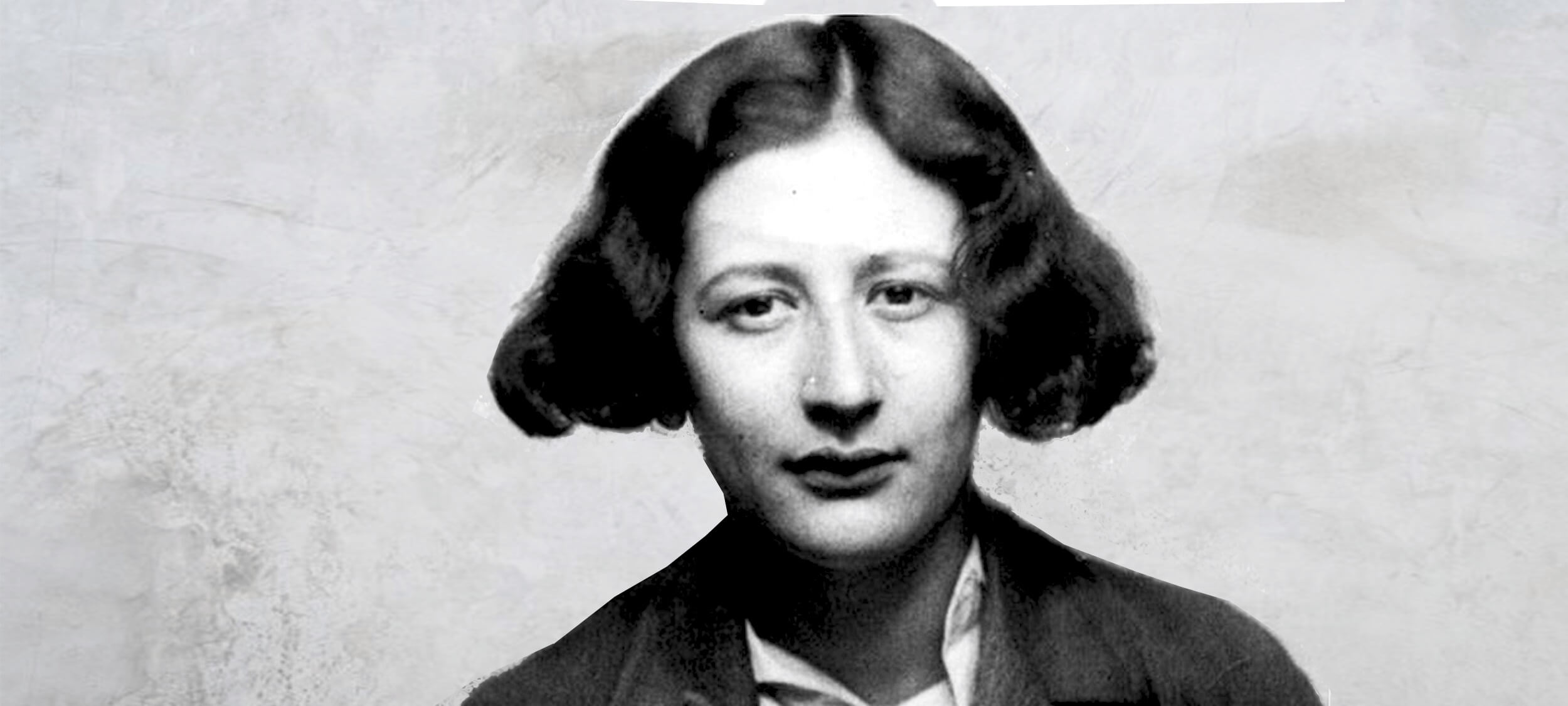Parent planning – we should be allowed to choose our children’s sex

Parent planning – we should be allowed to choose our children’s sex
Opinion + AnalysisHealth + WellbeingRelationshipsScience + Technology
BY Julian Savulescu The Ethics Centre 16 SEP 2015
In 2015, The National Health and Medical Research Council was accepting public submissions regarding sex selection in IVF procedures. It has previously prohibited non-medical sex selection.
This is one of two responses we’ve published on our website. Don’t agree with Julian? Check out Tamara Kayali Browne‘s piece, which argues that IVF sex selection is unethical.
Current NHMRC guidelines prohibit non-medical sex selection by any means. Victoria, Western Australia and South Australia have specifically legislated to ban sex selection using assisted reproduction.
The guidelines are now under review, providing the Australian public, the NHMRC and professionals an opportunity to re-examine their opposition to sex selection.
Opposition to the legalisation of non-medical sex selection illustrates a misunderstanding of the role of law in civil society. If A wants to do X, and B wants to assist A to do X for a price, the sole ground for interfering in their freedom is they will harm someone. Moral disapproval is not a ground for a legal ban.
Who would be harmed by allowing sex selection?
The most obvious candidate is the child. Call him John. The basis of most legislation in assisted reproduction is that the best interests of the child must be paramount. However, it is not against the interests of John to be conceived by sex selection. Indeed, if IVF and sex selection were not performed, John would not exist. John owes his very existence to the act of sex selection.
There is another kind of harm often invoked in these kinds of debates – a moral harm. John is being used as a means to his parents’ ends of having a child whom they have stereotyped goals for. John is being used as an instrument.
People intuitively believe that children should be “gifts”, not valued for particular characteristics, such as sex, intelligence or athletic ability. We ought to give them their own opportunity to make their own life. That is, they should have a right to an open future.
Enter Immanuel Kant
Such objections are best expressed by German philosopher Immanuel Kant, who said people should always be treated as an end, and never a means.
But what Kant actually said is never treat people merely or solely as a means. We treat people as a means all the time – shopkeepers, salesmen, repair people and doctors. We respect adults by obtaining their consent to treat them as a means.
It is not possible to obtain consent from children – particularly not regarding their creation. What then does it mean to treat a child merely as a means?
People have children for all sorts of reasons – to be a sibling, to hold a marriage together, to care for parents, to be a companion, to realise the parent’s dreams, to take over the family business or to be king of England. Ethically, these reasons aren’t important. What matters is how well they treat their child once it is born, whether male, female, disabled, tall, short, come what may.
Something like this kind of “instrumentalisation” objection might be behind the NHMRC’s policy:
A conditional life
The Australian Health Ethics Committee believes that admission to life should not be conditional upon a child being a particular sex.
Equality of all people should not be conditional upon any characteristic, such as their sex. But there is a distinction between continued existence and coming into existence. Continued existence should not be conditional on sex.
It might be thought the same follows for admission to life. But the NHMRC does allow medically motivated sex selection to guard against certain diseases and disabilities. This suggests admission to existence can be “conditional” upon being healthy and non-disabled.
What “conditional” means here is “based on reasons”. One can have children for reasons, such as being of certain sex, having certain abilities, being healthy or not disabled. As long as one loves the child, gives the child an open future and good life, having reasons to have that child is perfectly ethically acceptable.
For example, a father wants to have a son to take to football matches. He therefore moulds the child to his needs by sex selecting. He can still treat the child, once born, as an end by respecting the child’s own decision to pursue an interest in music instead.
Harmful sexist stereotypes
The final alleged harm is to society, either by reinforcing sexist stereotypes or disturbing the sex ratio. In some parts of India and China, there are six males to five females.
Such harms could be real and might be a legitimate basis for interfering in liberty. But another basic principle is that the least liberty-restricting (least coercive) means should be adopted to prevent harm.
The present ban on non-medical sex selection is very wide-ranging and coercive. Are there less coercive means that would allow some sex selection but not reinforce sexist stereotypes and disturb the sex ratio? There are at least three better policies:
- Sex selection only in favour of girls.
- Sex selection for family balancing. That is, sex selection for the second or third child, when the existing children are all of one sex and the preference is for the opposite sex. In Australia, this is the most common reason for sex selection and a little more than 50 percent select girls.
- Incidental sex selection. A couple having IVF and genetic diagnosis for infertility and screening of disorders, could be allowed to express a preference over the healthy embryos, at the discretion of their doctors.
Each of these strategies is less liberty-restricting and would protect the public interest.
There are no good grounds for the blanket ban on sex selection. Sex selection does not harm the child and any collateral harm (due to discrimination) can be controlled in better ways. A blanket ban is unethical, excessively restricting procreative liberty.
Ethics in your inbox.
Get the latest inspiration, intelligence, events & more.
By signing up you agree to our privacy policy
You might be interested in…
Opinion + Analysis
Relationships
Is it ethical to splash lots of cash on gifts?
LISTEN
Health + Wellbeing, Business + Leadership, Society + Culture
Life and Shares
Opinion + Analysis
Health + Wellbeing, Relationships
How to break up with a friend
Explainer
Politics + Human Rights, Relationships
Ethics Explainer: Autonomy
BY Julian Savulescu
Julian Savulescu holds the Uehiro Chair in Practical Ethics and is Director of the Centre for Practical Ethics at the University of Oxford. He also directs the Oxford Centre for Neuroethics and the Institute for Science and Ethics. He is Editor of the Journal of Medical Ethics.
BY The Ethics Centre
The Ethics Centre is a not-for-profit organisation developing innovative programs, services and experiences, designed to bring ethics to the centre of professional and personal life.
Parent planning – we shouldn't be allowed to choose our children’s sex

Parent planning – we shouldn’t be allowed to choose our children’s sex
Opinion + AnalysisPolitics + Human RightsRelationshipsScience + Technology
BY Dr Tamara Kayali Browne 16 SEP 2015
The National Health and Medical Research Council was accepting public submissions regarding sex selection in IVF procedures in 2015.
It has previously prohibited non-medical sex selection. We asked two bioethicists for their thoughts on the matter.
Bioethicist Tamara Kayali Browne says we need to ask why parents might want non-medical sex selection to see why it is wrong. This is one of two responses we’ve published. Don’t agree with Tamara? Check out Julian Savulescu’s argument that IVF sex selection should be allowed.
Using sex selection to prevent medical complications associated with a particular sex is already permitted. Given this, why might parents seek non-medical sex selection? It seems clear to me the primary reason is not to select the child’s sex, but his or her gender.
According to the World Health Organisation, sex is defined by biological and physiological characteristics such as genitalia and chromosomal makeup. Gender, on the other hand, refers to “the socially constructed roles, behaviours, activities, and attributes that a given society considers appropriate for men and women”.
A complex issue
Most parents will not desire a male or female child in the sense of their genitalia. Rather, they will want a child who fulfils socio-cultural definitions of ‘boyhood’ or ‘girlhood’. This is problematic because it assumes our sex determines our adherence to gender-based social norms and behaviours.
At best, acting on assumptions which are not evidence-based is bad science. Yet in this case, gender assumptions also have very serious repercussions within society. Assumptions and stereotypes regarding how each gender should be, act, excel at and strive for, underlie the sexism that pervades our societies.
As such, sex selection is a product of, and perpetuates, false assumptions about gender that keep men and women “in their places”. This prevents progress towards equality and freedom from restrictive gender roles and bias.
Generational impact
For children, it means a narrower rather than a more open future. It also tacitly sanctions the sort of bullying that “tomboys” or “sissies” experience when children dare to transgress gender norms. For adults, it means a step backwards to perpetuating bias and discrimination.
With this in mind, we can see why some of the frequent arguments in favour of non-medical sex selection are unpersuasive.
Consider family balancing. Prospective parents who seek to undergo sex selection for “family balancing” don’t seek to have a variety of sex chromosome or genitalia in the household. Rather, they seek to have a child who espouses the attributes, behaviours, activities and roles typically associated with the opposite gender of the children they already have.
“Family balancing” thus relies on the same gender stereotypes and assumptions as any other form of non-medical sex selection. For this reason, sex-selection for family balancing is unethical and not assuredly successful. By perpetuating stereotypical notions of gender it validates unwarranted expectations in parents, which children will then have undue pressure to fulfil.
A similar case arises if parents were to tragically lose daughter (for example) and seek to replace her with a child of the same sex. Presumably, the parents did not enjoy parenting a daughter because she had female sex organs. Rather, they likely enjoyed parenting her because of her attributes and behaviours, the activities she took part in or enjoyed, or even the clothes they felt they could dress her in.
All of these factors have the potential to be present in a son and they are not guaranteed in a daughter. The only barrier to realising this is social bias. If the parents truly understand that each child is different, it becomes hard to explain why the parents seek to undergo the trouble and expense of sex selection.
The right to choose?
Parental autonomy is often said to justify sex selective procedures. The idea being if parents prefer, or believe they will be better parents to one sex over the other, they should have the right to choose.
In cases where a family has children of both sexes, this belief will affect parents’ relationships with children of the non-preferred sex. If a mother believes only a daughter can facilitate a particular kind of relationship, her prejudice will sever the possibility of having such a relationship with her sons.
In this light, one can see that the gender assumptions which drive sex selection can actually make parents feel deprived of certain parenting experiences. Yet as there is in fact no reason to feel this way, these assumptions about gender curtail the autonomy of both parents and children.
Free of unfounded assumptions, parents may be freer than they realise to form the relationships they desire with children of either sex. This knowledge is freeing for both children and parents.
The wishes of intending parents should not override the need to respect the child who will be born. This is even more the case when those wishes are based on gender stereotypes and assumptions which have no scientific basis.
Opportunity for all
All children have a right to a maximally open future and this right is curtailed when parents expect their children to act according to a narrow set of gender norms. The stronger the parental preferences to have or avoid a child of a particular gender, the more likely those expectations will harm the child.
Only parents with particularly strong prejudice are likely to undertake such an invasive, risky and expensive procedure. As such, the risk to the child’s right to self-realisation and self-determination is even greater. As a result, the need to uphold their rights is even stronger.
Ethics in your inbox.
Get the latest inspiration, intelligence, events & more.
By signing up you agree to our privacy policy
You might be interested in…
Opinion + Analysis
Politics + Human Rights, Relationships, Society + Culture
The sticky ethics of protests in a pandemic
Opinion + Analysis
Health + Wellbeing, Relationships
Australia’s paid parental leave reform is only one step in addressing gender-based disadvantage
Opinion + Analysis
Relationships, Society + Culture
Five dangerous ideas to ponder over the break
Big thinker
Relationships









